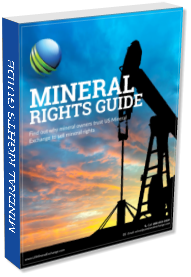Guide to Mineral Rights and Royalty Ownership in 2025
As a Mineral and Royalty Owner, you have experienced that the last few years have been interesting. From 2020 to 2024 mineral rights owners have seen both ups and downs and the swing has been significant. The really great news is that things are still very good in the market now for any owners thinking of selling. Our clients had a ton of success stories in 2023 and 2024, and we expect that to continue in 2025. If you are looking to sell your mineral and royalties in 2025, we can help ensure you sell for maximum value!
What can you expect to receive if you sell your royalties? Read on in this post. We’ll break down everything you need to know about mineral and royalty rights ownership in 2025.
US Mineral Exchange has been helping mineral owners since 2012. We understand the mineral rights marketplace better than anyone. We will share knowledge of what the industry expects and how that will impact you as a mineral owner.
If you still have questions after reading this, please fill out the contact form at the bottom of this page. We respond to nearly all inquiries within a few hours, so we can quickly answer your questions.
Whether you want to sell mineral and royalty rights, obtain a value for mineral rights, are curious about the tax impacts of mineral rights ownership, or simply want to stay up to speed, we can help you navigate mineral rights ownership in 2025.
This guide will cover the following topics related to mineral rights ownership. If you want to skip ahead, just click on the links below to skip to that section:
- Oil and Gas Market Update for Mineral Owners
- Types of Mineral Rights Ownership
- Mineral Rights Value in 2025
- Understanding Mineral Buyers
- How to Choose a Mineral Rights Broker
- How to Sell Mineral Rights in 2025
- Free Consultation
By the end of the article, you’ll have a clear understanding of the mineral rights market today!

Oil and Gas Market Update for Mineral Owners
How will current energy markets affect you as a mineral and royalty owner? There’s a lot happening all over the world and at home, so let’s take a closer look at what promises to be a very interesting year.
Elections Results in 2025 Will Have a Strong Impact on the Industry
During his first presidency, Trump focused heavily on rolling back environmental regulations that were seen as barriers to the oil and gas industry. For example, he dismantled a number of Obama-era regulations designed to curb carbon emissions, such as the Clean Power Plan, and reduced restrictions on drilling in federally owned lands. His administration also emphasized the importance of energy independence for the U.S., which involved increasing the country’s domestic oil and gas production. Trump’s election in 2024 would likely result in a similar regulatory environment, with reduced constraints on exploration and extraction, particularly in shale oil and natural gas. Drill, Baby Drill as they say!
A return to these policies could lead to a significant uptick in U.S. oil production. With less regulatory burden, U.S. companies might accelerate investment in drilling technologies and exploration, particularly in shale regions such as the Permian Basin and the Bakken Formation. This would increase supply, potentially leading to downward pressure on oil prices in the short term. Higher domestic production would also give the U.S. more leverage in international markets, as it could export more oil and gas, contributing to a shift in global supply dynamics. The U.S. could become an even more significant player in global energy markets, which could influence OPEC’s pricing strategies.
For Mineral and Royalty Owners, the key here is more supply can result in downward pressure on pricing. There is a case for current prices to drop and with that comes lower income for Royalty owners.
On the other hand, while Trump’s policies would likely provide short-term benefits to the oil and gas industry, especially in terms of production and market share, they could also have long-term implications for the broader energy transition. A second Trump presidency could slow the shift toward renewable energy by reducing incentives for clean energy projects, cutting funding for climate-related research, and eliminating renewable energy mandates. This would likely keep the fossil fuel industry more competitive in the short term and could hinder the growth of the green energy sector.
The longer-term impact on oil prices could therefore depend on the pace of the global transition to renewable energy. If the world continues to push for cleaner energy solutions despite U.S. policy, oil prices might face upward pressure as demand for oil decreases. However, if Trump’s policies succeed in prolonging fossil fuel reliance in the U.S. and other countries, oil prices could remain relatively stable or even rise, driven by higher demand and limited production growth from non-OPEC countries.
Only time will tell if prices will rise or fall in the new administration.
Permian Basin Remains the Focal Point for U.S. Energy Production
As one of the largest and most productive shale oil fields in the world, the Permian has long been a critical driver of U.S. oil output and has seen a resurgence in activity over the past several years.
The application of new technologies to improve efficiency in drilling and extraction processes has been an ongoing trend in the Permian Basin, and it likely continued to drive significant production gains in 2025. One of the most notable trends is the growing use of “big data” analytics and artificial intelligence (AI) to optimize drilling operations. AI has been employed to predict the most productive areas for drilling, optimize the spacing of wells, and improve the overall economics of extraction. Furthermore, advancements in horizontal drilling and hydraulic fracturing (fracking) technology have enabled operators to tap into previously inaccessible resources, further boosting production levels. Technological breakthroughs continued to enhance recovery rates and reduce operational costs in 2024 and as a result, the Permian Basin’s output reached new heights. A trend expected to continue in 2025.
Alongside technological improvements, there has been a very large uptick in Mergers and Acquisitions. In August of 2024, Forbes reported that the value of M&A deals in the industry totaled an “unprecedented” $250 billion. While there certainly has been an increase across many plays including the DJ Basin, Bakken, and Haynesville, the Permian Basin remains the driver. From Diamondback’s $26 Billion dollar acquisition of Endeavor Energy Resources, Occidental’s acquisition of Crownrock, LP, it was Exxon Mobil’s $60 Billion acquisition of Pioneer Resources that was the big story in the Permian.
The good news for Permian mineral rights owners is that, as productive as the basin already is, producers still covet its abundance of undeveloped acreage. Over the last few years, ever-improving technology and recovery methods have allowed the Permian to regularly set monthly and daily production records, no matter the daily price.
The Permian and Delaware Basins are still the best places on earth to own—and sell—mineral rights. And the area where we see significant demand and gain the highest sales prices for our clients!
Inflation Calms Down Somewhat
The Consumer Price Index inflation rate reported in December of 2024 stated a 2.7% increase over the past 12 months, much less than the last two previous year’s. The lower 2024 numbers were helped at least in part by the fact that oil remained in the $70 per barrel vicinity most of the year. The Federal Reserve’s pause and even lowering of the Fed Funds interest rates also played a part in keeping prices relatively in normal range. One of the most direct ways inflation impacts oil prices is through higher production costs.
Inflation typically leads to higher prices for goods and services across the economy, including those related to oil extraction, transportation, and refining. And while Demand Destruction was the big concern in 2024, the U.S. consumer was resilient and the impact on prices negligible. The hope is that by the end of 2025, inflation will have cooled off even more, which is expected to result in an increased investment in oil production and consumer demand increases.
US vs OPEC+
Selling Mineral and Royalty Rights in 2025
Since prices and demand are expected to stay in what is historically considered a normal range throughout 2025, we can help you maximize the sale of your minerals and royalties. Right now we are seeing very high demand and nice premiums for minerals and royalties soon after listing. We expect 2025 will continue to the strong trend of the last 36 months. It should be a fantastic year to capitalize on a strong market!

Types of Mineral Rights Ownership
Before we dive in, it’s important to define what types of mineral rights ownership you could have. Mineral rights ownership can be complex. There are a number of different ways to own mineral rights.
At the most basic level, mineral rights ownership is simply owning oil and gas that is beneath the surface. This ownership is generally measured on a mineral acre basis. A mineral acre roughly aligns to a surface acre. For example, if you owned 1 acre of surface rights that included mineral rights, your ownership in the oil and gas would be measured as 1 mineral acre.
Where things get confusing is when ownership gets split up. Typically the mineral rights are not owned by the same person as the surface owner. In addition, you have the ability to sell different depths, overrides, non-participating interests, etc which makes mineral rights ownership much more confusing. The value of mineral rights depends on many factors and the type of ownership you have is one of them.
Tip: On your check stub, your interest type should be defined. Typically by an RI, NPRI, ORRI/OR, etc so you can quickly determine what type of ownership you have.
Mineral Rights Ownership Types Explained
RI – Royalty Interest
The most basic type of mineral rights ownership is a royalty interest (RI on check stubs). A royalty interest owner has all rights and authority to the mineral ownership they have.
NPRI – Non-participating Royalty Interest
An NPRI is when you own the mineral rights, but you do not have a right to lease the mineral rights or collect a lease bonus payment when the mineral rights are leased. You also do not collect rental payments. With an NPRI interest, you effectively have the same ownership as a royalty interest but you don’t get to negotiate your own lease or collect lease bonuses. See executive rights below for more information.
Executive Rights
The executive rights are the rights to negotiate a lease. With an NPRI interest, you don’t have the rights to lease as those rights are owned by the person who has the executive rights. The person with the executive rights will negotiate the lease and collect the lease bonus. If you own the executive rights, you have an incentive to negotiate the worst lease terms possible for mineral owner. The reasons is that you will get a higher lease bonus. For example, if a company approaches you to lease and offer $1,000/acre for a 25% lease or a $2,500/acre for a 12.5% lease, you would take the $2,500/acre lease bonus with a 12.5% royalty. Since the NPRI owner will collect the royalties, you don’t care if it’s a 25% lease because you won’t get the royalty income.
ORRI – Overriding Royalty Interest
An overriding royalty interest (ORRI or OR on check stubs) means that you have a right to the royalty income, but you have no mineral rights ownership. An ORRI is created when a lease is signed. For example, let’s say ABC Lease approaches you and you agree to lease your mineral rights at 20%. ABC Lease then approaches XYZ Operating and leases your mineral rights to them for 22%. ABC lease has just created a 2% ORRI for themselves based on any production from the lease. If XYZ Opearting drills a well, the mineral owner will get 20% of the royalty income and ABC Lease will get 2%, while the operator takes the remaining 78%. When the lease expires, so does the ORRI.
WI – Working Interest
If you own a working interest, you are participating with the operator as a partner in drilling the well. Think of Working Interest as being an owner in a company, but instead of a company, you own an oil and gas well. As an owner of the company, you are responsible for all the drilling, completion, and operational costs. Each month you will be entitled to your share of the income from operations, but also your share of the expenses. A working interest is substantially more risk. At some point, the revenue being generated by the wells is less than the expenses. In this case, you actually owe money each month to keep the well operating even though it’s operating at a loss.
Status of Mineral Rights Ownership
Above we have explained the different types of mineral ownership you can have. Regardless of what type of mineral rights ownership you have, the status of your mineral rights can be different. Mineral rights fall into one of three categories.
Non-Producing Mineral Rights
At one point, everyone started out with non-producing mineral rights that were not actively leased. If that is still the case for you, these types of mineral rights have very little to no value at all. Until you are approached by an operating to lease the mineral rights, it would be very difficult to find a mineral buyer.
Leased Mineral Rights
Before a well can be drilled on your mineral rights, they must first be leased. A mineral lease gives a company the right to drill for oil and gas. You will be approached to lease your mineral rights before drilling occurs. Typically a company will offer a 3 or 5 year lease. The lease will also include a royalty percentage which is your share of the oil and gas income. The higher your royalty percentage, the more money you will make as oil and gas is produced. The company who leases your property will also pay you a lease bonus for signing this agreement. A lease bonus could be anywhere from $50/acre to $7,500+/acre.
Producing Mineral Rights
After your mineral rights are leased, the company has the right to drill and start producing oil and gas. If this occurs, you now have producing mineral rights. Each month you will get a check for your share of the production. The amount you get will be based on the price of oil or gas, your royalty percentage, taxes, expenses, etc..

Mineral Rights Value in 2025
One of the most challenging things about mineral rights ownership is understanding value. The market value of mineral rights changes constantly. In addition, there is no clear way to determine the value of mineral rights.
Many mineral owners believe that mineral rights are like a home. You can quickly check some type of service like Zillow or Redfin, and determine mineral rights value. It’s simply not possible.
If you want to learn about mineral rights value, carefully read the sections below. We will explain everything you need to know about how to value mineral rights.
Factors Affecting Mineral Rights Value
The first thing to understand is that mineral rights value is determined based on many factors. In addition, each individual factor can swing the value of mineral rights by 10%, 20%, or even 30%+ very quickly.
For simplicity’s sake, let’s take oil prices as a good example.
As the price of oil swings up and down, the underlying value of your mineral rights also varies. Your mineral rights are generally valued based on the number of barrels of oil underground times the current price.
Over the last two years the price of oil has bounced up and down between $120 per barrel and around $70 and everything in between. That whole range is well above the level at which most wells are profitable, so producers have returned to action—although at lower activity rates than those prices previously would have caused. The reluctance is mainly due to investor issues, as stated above.
Just that one factor, price, can swing the value of your mineral rights by more than 100%.
In addition to oil prices, here are some other factors that can easily swing the value of your mineral rights:
Any one of the factors above could swing the value of your mineral right substantially. This is why you need competitive bids for your mineral rights. Your goal is simple, to get the highest price today based on all of these current factors. When you sell mineral rights at US Mineral Exchange, we can help you get the property in front of thousands of mineral buyers to ensure the best price.
Market Value of Mineral Rights
While there are many factors that affect mineral rights value, what ultimately matters is the market value of mineral rights. Market value is what a mineral buyer is willing to pay TODAY for your mineral rights.
We talk to a lot of mineral owners. One of the most common things we hear mineral owner say is, “oil prices will eventually go up, so I want a premium price”. That’s not how market value works!
Imagine owning a home. The home is in a decent neighborhood, but needs major rehab to get that home back into good shape. If you were selling the home, would you expect to get the same price for your house as a house that was recently renovated that’s in an A+ neighborhood? Of course not! Imagine trying to convince a buyer that the home will be worth more in the future when the neighborhood gets better and prices rise.
Unfortunately, mineral owners do this all the time. They expect to receive a value today based on what the mineral rights might be worth years from now.
The most important thing to understand about mineral rights value is that your mineral rights are worth what a buyer is willing to pay today. Period. Rumors about more wells being drilled, oil prices heading higher, new pipelines, or anything else is simply speculation. At US Mineral Exchange, we can tell you what is happening around your area, removing speculation so you “know your neighborhood”.
If you want to sell mineral rights you need to be willing to accept the best market price available. This is exactly what we do at US Mineral Exchange. We market your mineral rights to thousands of the industry’s best mineral buyers to ensure the best price. If you sell mineral rights on your own by taking the shotgun approach, you’re almost guaranteed to sell below market value.
How to Estimate Mineral Rights Value
Another common question we get from mineral owners is how to estimate mineral rights value. It’s important to understand that the best indicator of market value when it comes to selling is the highest offer. It is not appraisals for estate evaluations. The key is to find legitimate and qualified mineral buyers.
We see a lot of mineral owners get 2 or 3 offers and then assume the highest one is fair market value. Don’t fall into that trap! While offers may be a good estimate of mineral rights value, it doesn’t mean your highest offer is really the best price available.
With that in mind, below is a good rule of thumb for mineral rights value. Keep in mind that the status of your mineral rights we described above will play a role in value.
- Producing Mineral Rights: While there are many factors that play a role in producing mineral rights value, you might expect to get about 4 years to 6 years times your average annual income. Take your last 3 royalty checks and find the total, then divide that number by 3 to get your average monthly royalty over the last 3 months. However, please note that it is often the value for producing minerals are significantly more than this general rule of thumb. There are many factors that will cause you to get more or less than this range.
- Leased Mineral Rights: In the past, mineral rights value for leased mineral rights has fallen in the range of 2x to 3x lease bonus. Recent market conditions have challenged this rule of thumb but we expect over time that this will once again hold true.
- Non-Producing Mineral Rights: If you have mineral rights that are not currently leased or producing royalty income, you have non-producing mineral rights. Unless you have had a recent offer, the value of these mineral rights is likely very low. It is not uncommon for offers to be less than $100/acre.
Received an offer? If you received an offer to sell mineral rights and it falls in the range (or even above!) what we are showing, do not accept the offer. The estimates above are just a general rule of thumb for mineral rights value. The only way to get the best price is through competition. We have helped many of our clients sell minerals and royalties that are producing less than $1,000/Month for Multiple Millions!!
To learn more about what your mineral rights might be worth, check out our estimate mineral rights value page.
Maximizing Mineral Rights Value
We have talked a bit about market value and estimating value, but how do you actually sell mineral rights for maximum value? The key is competition!
A lot of mineral owners take the shotgun approach to selling mineral rights. They reach out to a few buyers online, receive a few offers in the mail, negotiate a deal, and assume they got a fair price. This is not the way to get the best price.
Mineral buyers all evaluate your property differently. Each buyer has a unique formula they use to come up with value. Remember the factors we mentioned above? All of these plus many more are used to come up with an offer. With all these factors coming into play, the offers will vary widely. You may have noticed that yourself based on offers you have received in the mail.
The key to getting maximum value when selling mineral rights is competition. You need to get your mineral rights in front of thousands of buyers. This is the only way to ensure you sell for the best price. You may be happy with a $250,000 offer because that’s a lot of money, but what if it was worth $300,000 or more? When you accepted that $250,000 offer you may have been happy with it, but you left $50,000+ on the table.
To ensure you sell mineral rights for the best price possible, you need multiple buyers bidding on your mineral rights. By marketing your interest to a nationwide market of mineral buyers, you allow each buyer to compete for your mineral rights, allowing you to maximize your sales price. When you list at US Mineral Exchange, we get your mineral rights in front of thousands of the leading mineral and royalty buyers to ensure you sell for the best price. Already have an offer? No problem. If we can’t get you a higher price we don’t make a dime. It is very rare that we do not beat an existing offer and most of the time substantially.
Mineral Rights Appraisals
A lot of mineral owners are looking for a mineral rights appraisal. You may be trying to determine your tax basis for inherited mineral rights or figuring out if you qualify for medicaid, but if for selling your rights, you should be cautious.
Mineral rights appraisals are virtually worthless in our opinion. Why? A mineral rights appraisal will almost never match up to the reality of the market. These estimates of value look at the EUR or estimated useful reserves. Then they estimate oil prices and all the other factors listed above. Then they try and tell you what the market value of these mineral rights might be. They are always wrong and nearly always way too high!
Paying for a mineral rights appraisal is a waste of money in most cases. Only a true offer from a legitimate mineral buyer can give you a good idea of what the property might be worth. Only listing at US Mineral Exchange will show you the absolute market value of mineral rights.

Understanding Mineral Buyers
Who are Mineral Rights Buyers
Mineral buyers come in many shapes and sizes. It depends a lot on the value of your mineral rights. If you are selling a $25,000 property, the buyer might just be a wealthy individual with some mineral rights ownership experience. If you are selling a $500,000+ property, the mineral buyer will typically be private equity backed.
Private equity backed mineral buyers typically get a lump sum of money to invest each year. These mineral buyers are very sophisticated and thoroughly understand the investments. Even still, private equity backed mineral buyers will have a wide range in what they are willing to offer. Some mineral buyers take on more risk and pay higher prices. Some are very focused on buying mineral rights in a certain area and will pay a high price if you fall within their area.
A lot of mineral owners think that the operator, who pays you royalties, would be a potential mineral buyer. While operators do sometimes buy mineral rights they often do not pay fair market value.
Why Mineral Buyers Buy Mineral Rights
There are three types of mineral buyers. Unfortunately, a lot of mineral owners end up working with a flipper or sell for profit mineral buyer. Doing so will cost you thousands of dollars or waste significant time. There are obvious signs you are working with the wrong type of mineral buyer if you know what to look for.
Flippers – We hesitate to call flippers mineral rights buyers. Flippers typically have no money. A flipper will make you an offer for mineral rights but they have no intention of actually buying your mineral rights. They also likely can’t afford to buy them. Instead, these “mineral buyers” will claim to be buying your mineral rights and get you to sign a contract agreeing to a certain price point.
Let’s assume a flipper got you to agree to $2,500/acre. That flipper will then go out to other actual mineral buyers and then try and ‘flip’ the contract. They will find a real buyer who wants to buy your mineral rights for $3,500/acre. If they are successful, you just paid a 40% commission rate!
Would you sell your home if the broker wanted 40% to list the property? NO! If they aren’t successful, they wasted your time and set the expectation that your mineral rights are worth more than the market was willing to pay.
Sell for Profit – There are a large number of mineral buyers who do have the funds to actually purchase your mineral rights. However, they still turn around and sell quickly for a profit. A lot of mineral owners make the mistakes of thinking, “Well I don’t care what they do with it after I sell”. You should care because you might be leaving a huge amount of money on the table!
Consider this. We have a number of mineral buyers who buy mineral rights from you and then come list with us.
We have literally talked to mineral owners in the past who wouldn’t list because they want to take the shotgun approach. A short time later, a mineral buyer approaches us and wants to sell the exact property of the mineral owner we just talked. We end up selling the property and the mineral buyers makes a hefty profit.
Why does this happen? The mineral buyer can buy from you at a lower price (with no competition), then come list the mineral rights with us and get a better price and make a quick profit.
Why shouldn’t that be you getting the higher price? When you sell mineral rights on your own, you risk leaving a lot of cash on the table.
Long Term Hold – As a mineral owner, your goal is to find a true end buyer. A mineral buyer who does not want to turn around and sell the mineral rights. They want to own the mineral rights for the long term, and therefore, will pay the best pricing.
A lot of these private equity backed mineral buyers do not market! They rely on services like ours to bring them deals. Some of them don’t even have a website!
Can you tell the difference? A lot of mineral owners go under contract with a flipper or sell for profit mineral buyer and never realize they were taken advantage of. To get maximum value, you need to work with a true end buyer. At US Mineral Exchange, our process is designed to ensure you only work with long term hold mineral buyers.
Mineral Buyer Red Flags
We don’t recommend taking the shotgun approach to selling mineral rights, but if you do here are just a few of the red flags to look out for:
- Short Deadlines: Any buyer who wants you to make a decision within a few days should be concerning.
- Long Closing: If a mineral buyer needs more than 30 days to close, this is a red flag. There are some cases where it is warranted.
- Insane Values: Did you get an offer far above any offer you have ever seen? This could be a flipper just trying to get you to pick up the phone. We call this a teaser offer.
- High Pressure: If the mineral buyer a high pressure sales person? Legit mineral buyers will not put a lot of pressure on you.
- No Basis: Did you get an offer in the mail with no basis for the offer? IE just a number with no indication of how many acres you own, your royalty income, etc?
These are just a few of the many red flags to look out for with mineral buyers. It is easy to make a bad decision.
At US Mineral Exchange we can help you eliminate the red flags and find legitimate mineral buyers.
How to Find Mineral Buyers
If you want to find mineral buyers there are a lot of ways to do it. Once again, we don’t recommend selling mineral rights on your own. You will nearly always sell far below market value.

How to Choose a Mineral Rights Broker
The best way to sell mineral rights is through a mineral rights broker. There are two simple reasons for this:
- Price: You will get a higher price due to exposure to thousands of mineral buyers.
- Closing: A great mineral broker will navigate pitfalls saving you thousands of dollars. In addition, a great mineral broker will have a clearly defined escrow process in place to protect you.
Find out how to select the best mineral rights broker using the information below.
Mineral Buyers Disguised as Brokers
For obvious reasons, we can’t put down the names of any specific companies. However, there are a lot of “mineral brokers” who are actually mineral buyers. Some of these companies do not appear to be mineral buyers at all so it is very difficult to tell. These mineral brokers will get you to list with them and then sell to a company they have an interest in. If a site suggests that they will give you an offer or that they may show your property to “affiliated companies”, this is a buyer or at best a very bad broker.
If the broker has an interest in the company that is buying your mineral rights, do they have an incentive to get you the best price or the lowest price? Obviously, they want to put you under contract at the lowest price point possible.
Understanding Commission Rates
At US Mineral Exchange we charge a flat 6% commission rate similar to a real estate transaction. Mineral buyers will pay us this commission rate at closing so there is no direct cost to you for listing. In addition, we don’t get paid unless we can find you a higher price than an existing mineral rights offer you have in hand and upon the completion of the sale.
It’s important to understand commission rates before you sell mineral rights. If your broker is not charging you a commission rate this means one of two things:
- They are the buyer
- They are getting a lot more than 6% by flipping your property to an end buyer
Both of these are bad for you. You want a mineral rights broker who has a clearly defined commission rate. There is nothing wrong with a mineral broker getting paid by helping you get a higher price. You just want to ensure that they aren’t getting a crazy 40% commission rate like the example we used above when we talked about flippers.
We have heard from a number of mineral buyers who pick a broker based on commission. We set the industry standard at 6%.
Some mineral brokers undercut us by a percentage. You may save 1% on commission, but if you get a price that is 10% worse you actually lost 9% instead of saving 1%. The mineral broker you select makes a big difference in the value you will get. Lower offers or a mistake at closing will cost you far more than 1%!
At US Mineral Exchange, we are the highest rated Mineral Rights Broker in the industry, with a 4.9 star Google rating from actual clients, not made up testimonials!
Mineral Rights Broker Red Flags
There are a number of red flags to look out for when selecting a mineral rights broker.
As you consider your options, take a look at the list of red flags below. Carefully evaluate the website of the mineral rights broker you are considering. If you see any of these red flags proceed with caution:
No Listings or Suspect Listings
The most obvious red flag for a mineral rights broker is that they don’t have any actual listings. Or, the listings they do have just do not make sense.
This seems obvious, but many mineral owners fall into this trap. How can a mineral buyer be effectively marketing your mineral rights if they don’t have listings? How can potential mineral buyers view your property? Why are all the listings conveniently from just a few counties? If there are no listings publicly available on the website or the listings on the site seem suspect, the mineral broker is not going to be effective. Without exposure to buyers you will get lower offers and of course fictitious listings test the integrity of the broker.
False Claims
At this point every mineral broker claims to have thousands of mineral buyers. Some claim to have tens of thousands of mineral buyers. Did you know that you can buy a list of oil and gas industry professionals that has over 100,000 emails on it for just a few bucks? You can then claim that you have thousands of mineral buyers.
US Mineral Exchange has been in business since 2012, which is by far longer than most mineral brokers. Over that time, we have attracted thousands of mineral buyers to our website. Curious how long a broker has been in business? Public reviews tell the story!
What sets US Mineral Exchange apart is that we actually do have thousands of registered mineral buyers who have an account with us that are currently active. Having an email list of oil and gas industry professionals does not mean a mineral broker has thousands of legitimate end buyers.
Information / Education
Another obvious sign to look for is the amount of information and education provided. If you take a look around at most mineral rights brokers, they have very little information. A few pages on their blog that go over the basics, but no real in depth content that really helps mineral owners.
Whether you sell mineral rights at US Mineral Exchange or not, we provide information that will help you. Spend some time evaluating a mineral rights brokers website and look for signs they have put significant time and effort into helping mineral owners.
Exclusive Mineral Rights Focus
Some mineral rights brokers are not focused exclusively on mineral rights. They handle other types of mineral rights such as coal, wind, solar, cell phones, music rights, etc.. A broker who is specialized in mineral rights will get you a better price.
Why? A buyer who purchases wind rights is not going to be the same buyer who purchases oil and gas mineral rights. A mineral rights broker that isn’t focused exclusively on mineral rights is highly unlikely to realize the best price. They will have a smaller pool of buyers. They will not understand the pitfalls specific to oil and gas. They may not have a robust closing process based on years of experience closing.
At US Mineral Exchange we are focused exclusively on oil and gas mineral rights and exclusively on helping mineral owners get the best deal.
Value Estimates
Be wary of any mineral rights broker who claims they can provide you with a value for your mineral rights. It can’t be done. We’ve taken deals to a number of appraisal services to have them evaluate deals we already completed. They were wrong, by a lot.
The only way to determine mineral rights value is to sell. When you sell mineral rights in an open marketplace with competition, you’ll determine the true market value and sell. Any estimate prior to getting competitive bids is an educated guess.
If a mineral rights broker gives you an estimate with a huge range it provides no value. Imagine your real estate agent told you that your home is worth between $250,000 and $750,000. How is that estimate useful? It’s not! While we can use some general rule of thumb estimates in mineral rights value, anything beyond that is just pure speculation.
Proven Experience
As quality websites become easier to set up quickly, a large number of mineral rights brokers have shown up. Since 2012, US Mineral Exchange has seen a lot of mineral rights brokers come and go. Many set up shop with a decent looking website, convince a few unsuspecting mineral owners to list, and then close up shop after a few bad deals.
It takes years of experience to build a buyer network, understand how mineral buyers operate, and how to successfully protect mineral owners through the process.
At US Mineral Exchange we have been helping mineral owners sell mineral rights since 2012. When you work with US Mineral Exchange, your property is marketed to our network of the industry’s leading mineral and royalty buyers – thousands and thousands of them. We know exactly how to help you sell mineral rights for maximum value and ensure a smooth closing process.
Before listing anywhere else, ask them how long they have been selling mineral rights and how long has their company been in business. When selling mineral rights, experience and reputation matters. You need an experienced broker who knows how to get you the best deal and you need a broker with an industry leading reputation. That is US Mineral Exchange!
How to Pick a Mineral Rights Broker
When selecting a mineral rights broker pick one with the following qualities:
- Listings – Pick a mineral rights broker who clearly displays their listings. A dedicated listing platform to market your properties online is necessary to get competitive bids. This is the only way to ensure the best price.
- But not only Listings – Choose a mineral broker who also has an industry leading reputation. There are new brokers popping up all the time but the buyers you need to receive offers from have zero clue who they are and will simply refuse to work with them.
- Buyer Network – A quality broker has connections with thousands of mineral buyers. However, the best broker will also know how to weed out the flippers so you end up with true end buyers. At US Mineral Exchange, we know how to properly qualify buyers. This ensures you only work with legitimate high quality mineral buyers. In addition, we work with thousands of buyers to ensure the best possible price.
- Communication – A mineral broker should be easy to get a hold of quickly. When you send an email do they respond quickly? At US Mineral Exchange we respond within hours to inquiries and phone calls, and immediately to our listed clients.
- Experience – Take the time to figure out how long a mineral broker has been in business, not just what they state on their website. In just the last few years there has been a surge of mineral brokers offering to help you sell mineral rights. As setting up a decent looking website has become much easier, a lot of mineral brokers with no experience, no buyers, and no ability to ensure the best deal for you have jumped in. US Mineral Exchange has been in business since 2012 doing business in the name of US Mineral Exchange. Our industry leading reputation is exactly what you are looking for.
- Closing Process – Does your mineral rights broker have a clearly defined closing process? We do. A great mineral rights broker knows to walk you through the transaction from start to finish.

How to Sell Mineral Rights in 2025
If you want to sell mineral rights US Mineral Exchange can help. Our company is dedicated to protecting mineral owners. We want to help you sell mineral rights for the highest price possible. A lot of mineral owners end up selling far below market value. Don’t let that be you!
How to Sell Mineral Rights for Maximum Value
The only way to get maximum value when selling mineral rights is to create competition. Without competition, you will always sell mineral rights below market value. This is true whether you sell them yourself or partner with US Mineral Exchange.
You need mineral buyers competing to pay you the highest price for your mineral rights. You basically have two options when selling mineral rights:
1. Sell Mineral Rights yourself by taking the shotgun approach. The shot gun approach is when you reach out to a few buyers and hope you get a fair price.
When you sell mineral rights on your own, you will end up selling below market value. The reason is that you simply can’t connect with enough mineral buyers. There are thousands of mineral buyers. Getting in front of the right buyers without a marketplace like US Mineral Exchange simply isn’t possible. There is nearly always a mineral buyer who will pay a higher price. When you find buyers on your own you miss 99% of the mineral buyers.
After you find a buyer, you will then need to navigate the closing process, but by yourself. We hear horror story after horror story of mineral and royalty owners being surprised at the closing table. If you don’t understand the contract, you may walk away from the closing table with something much different that you expected.
Selling mineral rights using the shotgun approach is literally shooting yourself in the foot!
2. Selling mineral rights at US Mineral Exchange. When you sell mineral rights at US Mineral Exchange you get access to thousands of the industry’s top mineral and royalty buyers. More importantly, you’ll be working with experts who have the highest reputation in the industry. Many of the leading mineral rights buyers refuse to work with brokers other than US Mineral Exchange due to dishonest business practices. Don’t sign up with a broker who claims to have connections but in fact the connections they might have had are burned.
We can help you quickly get your mineral rights in front of the right mineral buyers which creates competition and ensures the best price. Our closing process will ensure you are protected every step of the way.
If you need to sell quickly and you have an offer to sell mineral rights in hand, we can help there also. Speed is not a deterrent to success.
If you decide to sell mineral rights yourself, please understand that you are extremely likely to sell below market value.
We understand that you don’t want to lose the offer in hand. We understand that listing mineral rights is an extra hoop to jump through. It will be worth it! We will help you maximize the value of your mineral rights and get the best deal possible.
Set Realistic Expectations when Selling Mineral Rights
When selling mineral rights it’s very important to set realistic expectations. A lot of mineral owners are not realistic about market value. Your mineral rights are worth what a mineral buyer is willing to pay TODAY.
When you are willing to accept fair market value for your mineral rights we can help you sell quickly and get the best price. You simply need to be comfortable with the fact that the value is what the market is willing to pay. We’ll find you the best price, but it’s up to you to accept the best market price available.
Gather Documentation to Sell Mineral Rights
Before you sell mineral rights at US Mineral Exchange we need some documentation. We get it. Pulling together documentation is not fun! However, if you want to get maximum value when you sell mineral rights it is necessary.
Imagine selling a home but the buyer is not able to visit the home in person. You still need to present your home in the best way possible. So, you pull together some professional photos. You walk around the house and take a video. You pull together some facts about the house to help the potential buyer see the value in your home. You even go as far as to sell the neighborhood, the schools and your city. This would provide the potential home buyer what they need to determine if they want to buy your house.
And while we do 99% of this work, there are some items that are required of all our clients. The 1% we normally need is check stubs. The one thing we would never have access to without help from you.
See what documents we need to market your mineral rights effectively at our required documents to list page.
Sell Mineral Rights at US Mineral Exchange
Selling mineral rights is overwhelming. This is a subject that most people simply aren’t familiar with. It is OK to be overwhelmed and confused!
At US Mineral Exchange, we can help you navigate the process. We’ll stand beside you each step of the way to ensure your interests are protected. We’ll make sure you get the best price and also make sure the closing process goes smoothly.
If you are interested in selling mineral rights fill out the form below. We’ll help answer any questions you have and help you get the process started.
Free Consultation – Mineral Rights Guide
Phew! That was a lot of information!
If you still have questions about mineral rights value, how to sell mineral rights, how to find mineral buyers, or anything else at all please don’t hesitate to reach out to us.
We enjoy hearing from mineral owners and we are happy to answer your questions. We typically respond within just a few hours and look forward to hearing from you!
Popular Content
- Sell Mineral Rights
- Mineral Rights Value
- Calculate Value
- Market Value
- Mineral Rights Buyers
- Mineral Rights Appraisal
- Mineral Rights Brokers
- Should you Sell Mineral Rights
- Never Sell Mineral Rights
- 10 Helpful Tips
- Mineral Interest Types Explained
- Common Mistakes
- Mineral Rights & Taxes
- Medicaid & Mineral Rights
- Common Q&A




